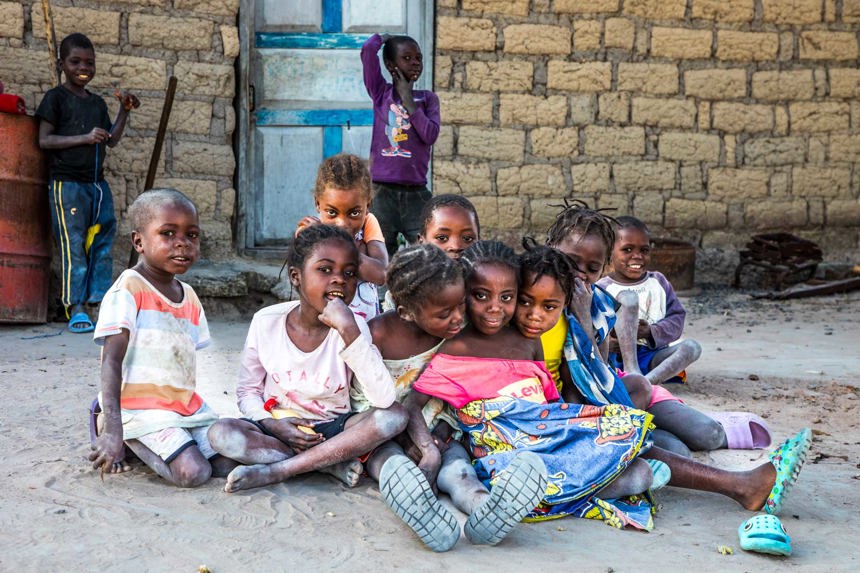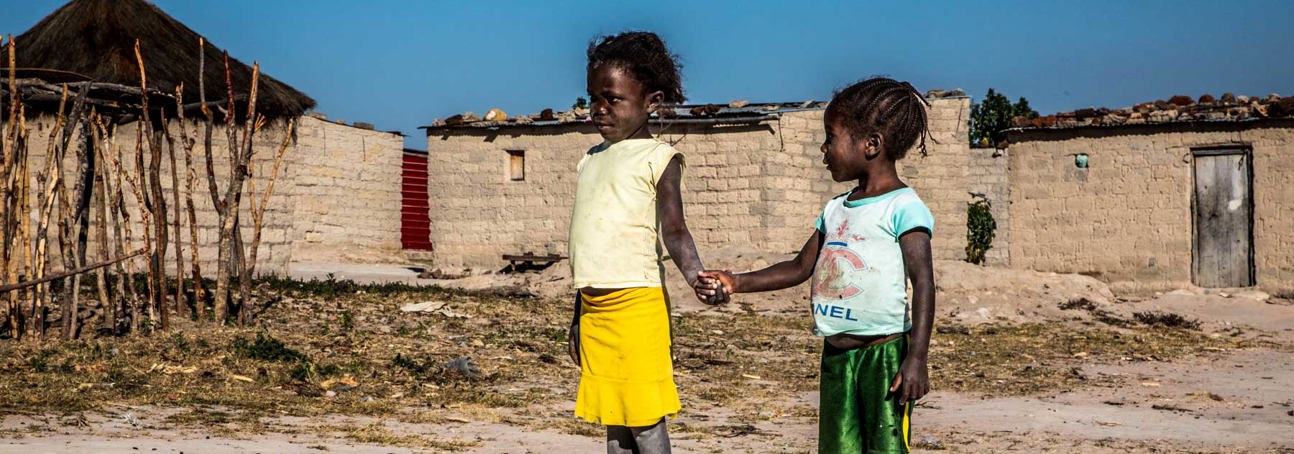Nestled in Angola’s Bié province is Lusserei village which is home to approximately 1000 people. National Road 250 connects Lusserei to Cuito train station—one of the many stops along the Lobito railway line (commonly known as the Lobito Corridor). This railway runs from Tanzania, through Zambia, the Democratic Republic of Congo and across Angola to the country’s Atlantic coast. The Lobito Corridor is an access point for development, but many of the adjacent rural communities are being left behind.
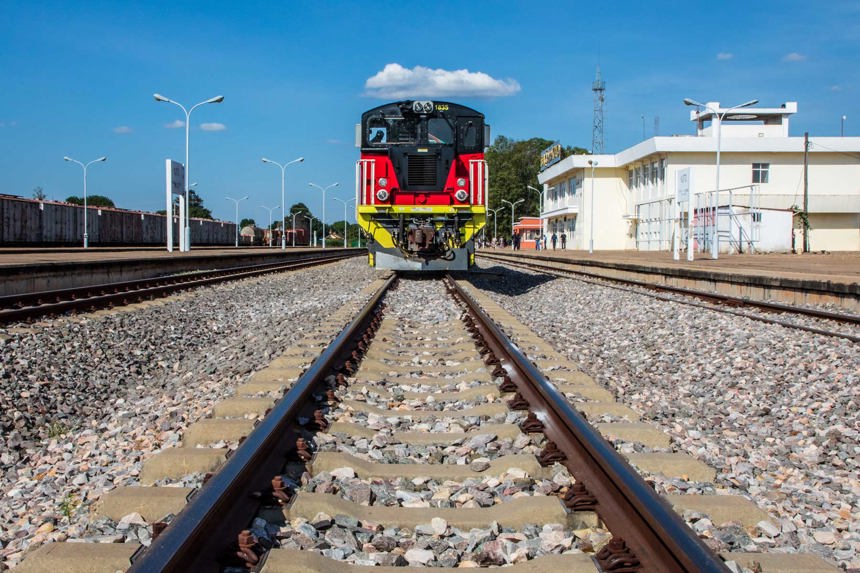
The Lobito train stopping at Cuito station
Throughout most of Bié province, the soil is fertile and water sources are widely accessible, but where mines and unexploded ordnance (UXO) are present, use of the land is severely limited. From 1983 to 1985, mines and other explosive items were laid around Lusserei village cutting off access to large amounts of land. Ever since, the local population can only cultivate enough to live on—maize, cassava, sweet potatoes and potatoes are their main sources of food.
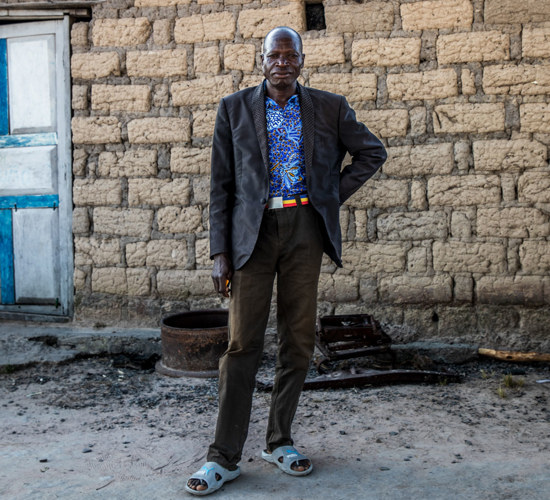
"We haven’t got many vegetable plots, but there’s a river… We have honey too, because we have hives. That’s what we eat here. We just stick to the same paths."
As the land is cleared of explosive contamination, local farmers can increase production. However, the legacy of mines and explosives hinders development in these areas and infrastructure remains insufficient to transport goods. To drive to Lusserei from Cuito train station takes roughly four hours on a dry day, despite the distance being only 130km. Left without a choice, men, women and children from local communities wait at the side of the road, trying to sell their produce to passersby.

HALO's deminers on their way to work in Lusserei
HALO began clearance around Lusserei village in April 2022 and so far 85 anti-personnel mines, two anti-vehicle mines and almost 400 additional explosive items have been found. Many children live in Lusserei. Their school sits just eight metres from the border of the declared and marked minefield. Each day from the school windows, they can see HALO’s clearance teams at work, their lessons peppered with the sounds of landmines and other explosive items being destroyed in the distance.
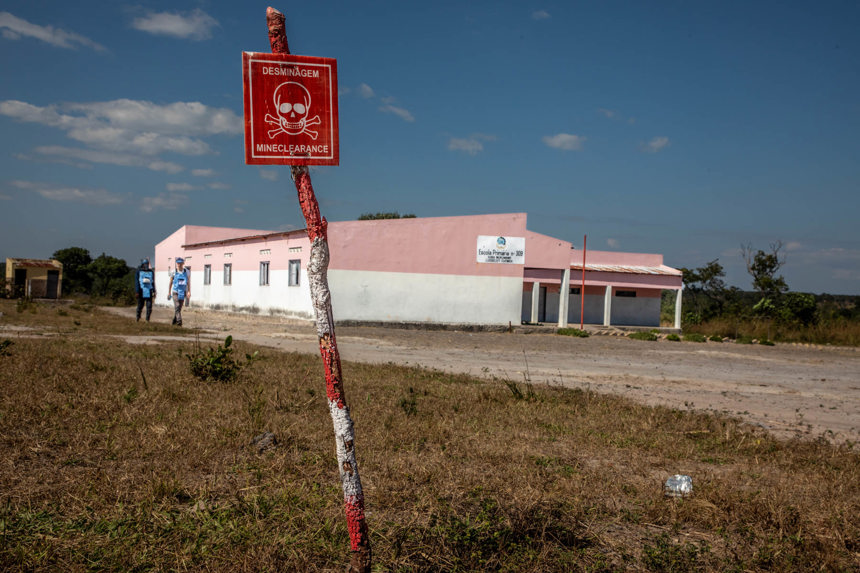
Lusserei Primary School is on the edge of the minefield
Nanda Cassinda is a mother of 10 children. Her youngest child is two years old. She talks about the fear she has experienced raising them next to a minefield.
"I have been telling my children about the threat of going to certain places because of the mines… Because even me, I am so afraid of the mines."
Nanda’s husband, João, is the secretary to the soba. Each day they watch HALO’s deminers go to work, clearing the land around their village:
"We were all afraid. Nobody could move from one place to another. The only hope we have for our children to live a better life, is to help us remove the mines from this area. Thank you very much."
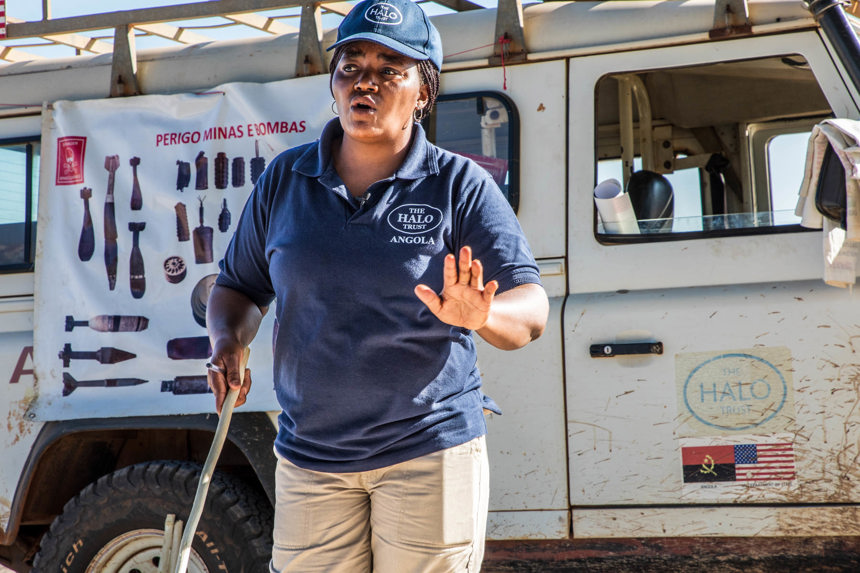
HALO’s Risk Education team conducting a session in Lusserei village
Clearance around Lusserei village is due to be completed in 2025. Once the mines are cleared, the land will be made available, not only for the village to cultivate, but for further development. As the soba of the village, Faustino hopes that once the land is safe, progress will follow. He hopes for an additional school, more houses and a hospital.
"Now we are happy because we are safe. We are safe from these dangers."
